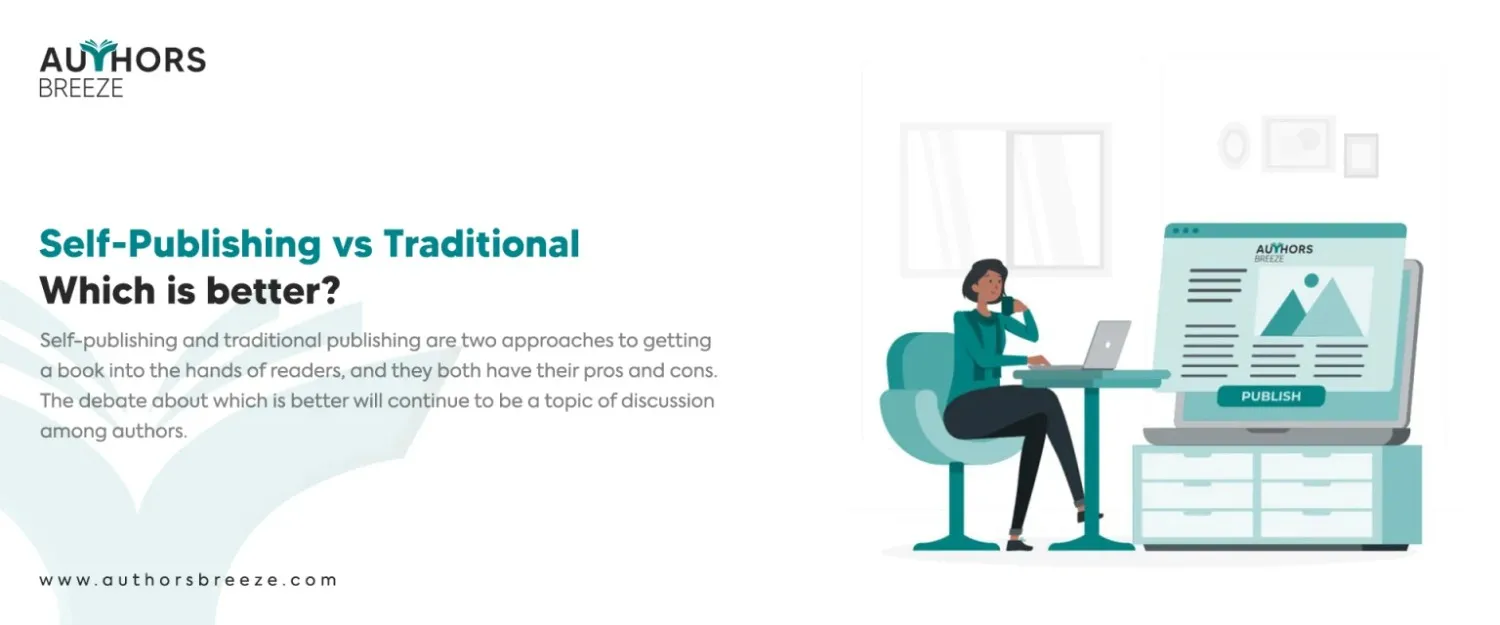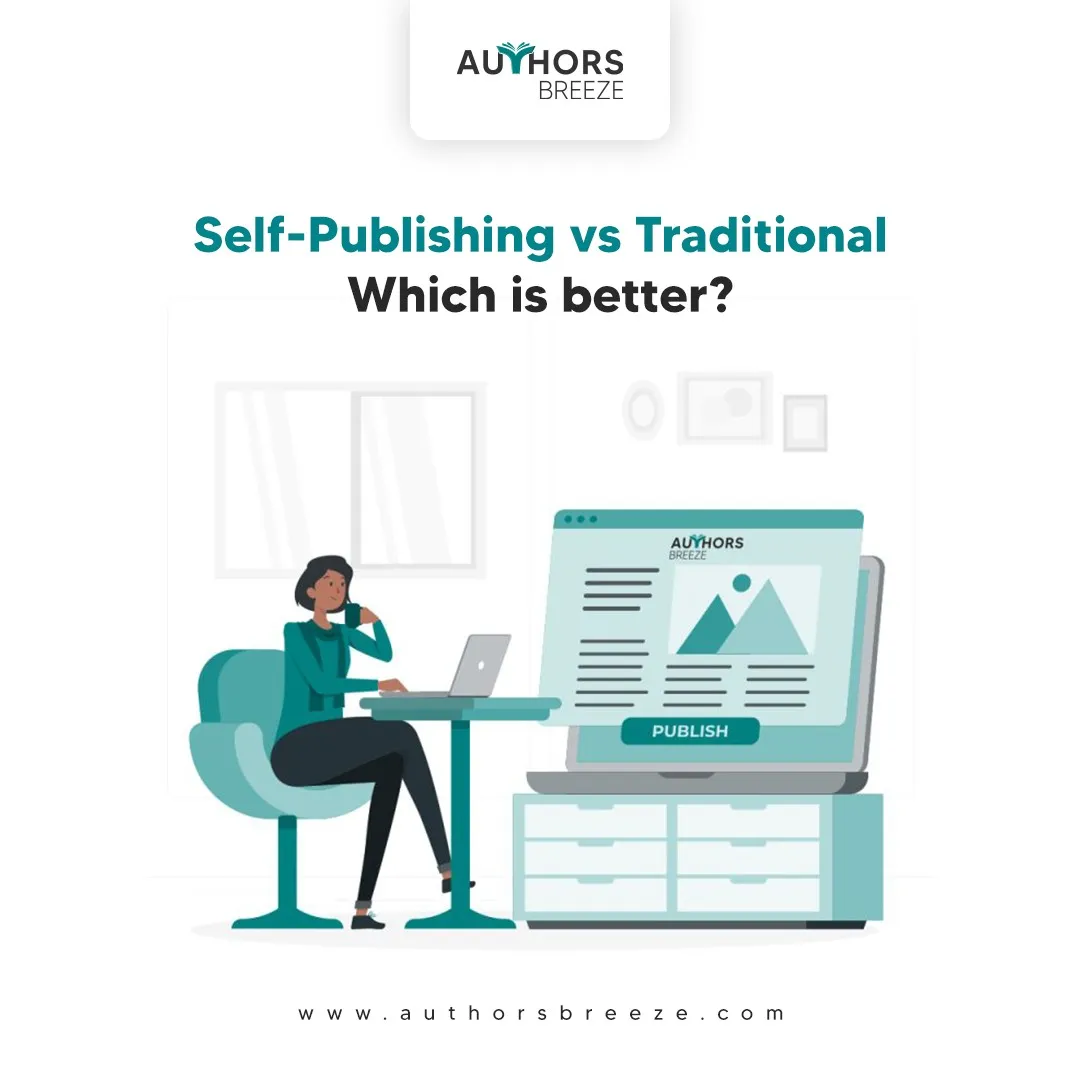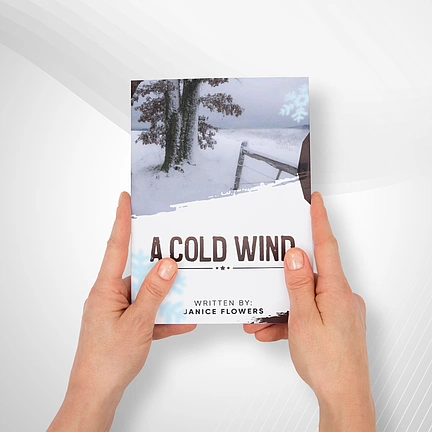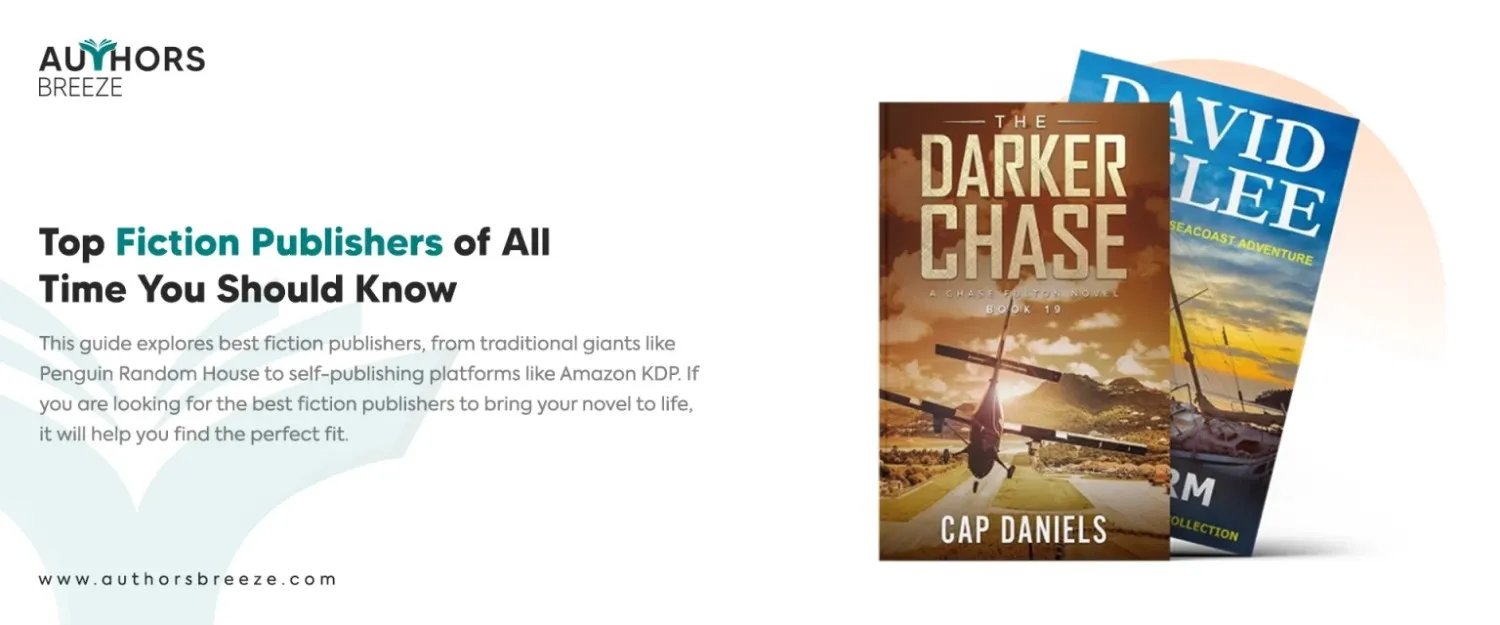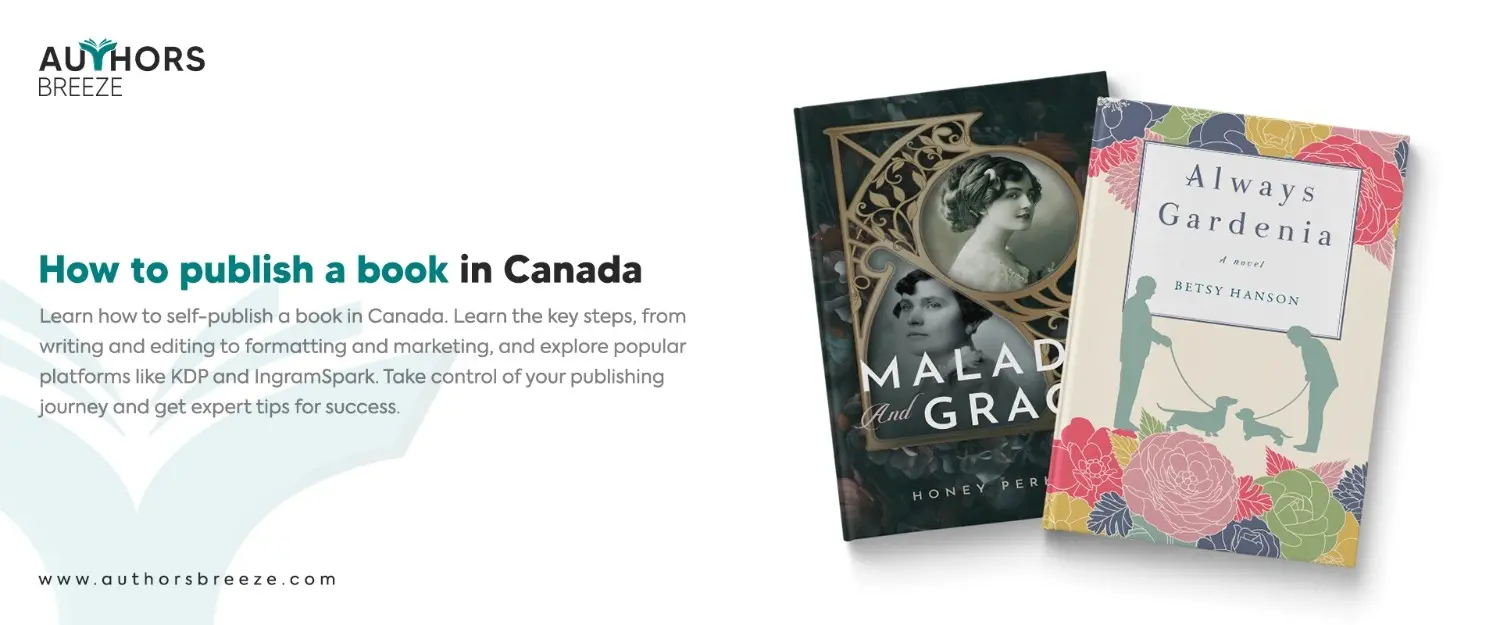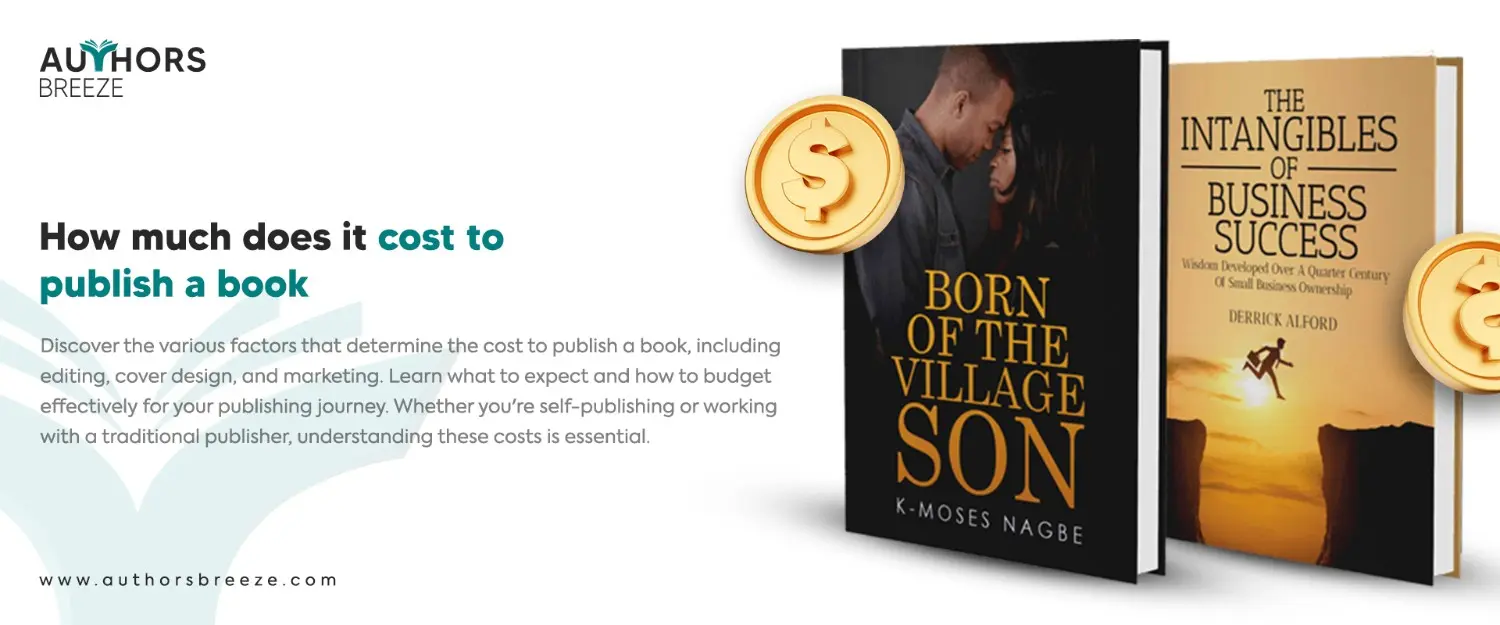Don’t Have Time to Read? Listen to this Article Instead!
Publishing a book is a dream for many writers like you. It can be possible if you choose the correct publishing route. Moreover, it is a critical decision that can impact the success of your work. In today’s digital era, there are two main options when it comes to publishing:
- Self-Publishing
- Traditional Publishing
Self-publishing involves an author taking on the responsibility of editing, marketing, and distributing their work themselves. On the other hand, traditional publishing consists of a writer submitting their work to a publishing house for them to handle the rest of the tasks.
Both routes have their advantages and cons. Therefore, you should know the differences between these two publishing routes, as it is essential in making informed decisions about your work.
Before you begin searching for finding the right publishing option to publish your book, you should have a book in your hand. Suppose you don’t know how to write a book to publish it. In that case, you can read our detailed guide on how to write and publish a book in 2025.
Self-Publishing vs Traditional Publishing
Self-publishing versus traditional publishing has been a hotly debated topic for many years, and in 2025, the debate continues. Moreover, you may also think of which to choose between them. In this post, we will explore both options, weigh their pros and cons, and help you decide which option is better for you in 2025.
What is Traditional Publishing?
Traditional publishing is the process where you submit your manuscript to a publishing house. In addition, if the publisher deems it worthy, they offer you a book deal. Then, the publisher will handle all aspects of the publishing process. Whether it will be editing, cover design, printing, or distribution, they will manage them. Traditional publishing is a selective process. Moreover, authors usually need to secure a literary agent to represent them to publishers.
Advantages of Traditional Publishing
Let’s talk about some of the benefits you get if you choose the traditional way of publishing:
Prestige and Credibility
Traditional publishing offers you a certain level of prestige and credibility. As a result, you have the backing of an established publishing house. Readers often see traditionally published books as more legitimate than self-published ones.
Resources
Traditional publishers have all the resources and expertise to manage all aspects of the publishing process, including:
- Editing and Proofreading
- Book design
- Distribution
It takes a lot of pressure off you, allowing you to focus on writing.
Marketing and Publicity
Traditional book publishers have established relationships with bookstores, libraries, and media outlets. It makes it easier for books to get into the hands of readers. They also have the budget to invest in advertising and promotional activities.
Disadvantages of Traditional Publishing
Now, we should check out the cons you could face if you publish your book traditionally:
Limited Control
When an author signs with a traditional publisher, they give up a significant amount of control over the publishing process. It can include cover design, editorial choices, and marketing decisions.
Slow Process
Traditional publishing is notoriously slow, with authors waiting months or even years for their books to hit the shelves. The process of finding a literary agent and then securing a book deal can take years.
Low Royalties
Traditional publishers offer authors low royalty rates, usually around 10-15% of the book’s net sales. It can be a disadvantage for you if you want to earn a living from your writing.
What is Self-Publishing?
Self-publishing is the process where an author takes on the role of the publisher. They handle all aspects of the publishing process. Self-publishing is more accessible than traditional. Moreover, anyone can do it, even without a literary agent.
If you want to self-publish your book and you have no clue what to do? You can read our easiest guide for 2025 on how to self-publish your own book in 8 steps.
Advantages of Self-Publishing
Let’s have a look at the perks you can get if you self-publish your book:
Control
Self-publishing gives you complete control over the publishing process, including book cover page design, editorial choices, and marketing decisions. You retain all rights to your work and can make changes to your book at any time.
Faster Process
Self-publishing is a much faster process than traditional publishing. You can have your book published and available for sale in a matter of weeks rather than waiting months or years for a conventional publisher to release your book.
Higher Royalties
Self-publishing offers authors higher royalty rates, usually around 70% of the book’s net sales. It means that you can earn more money from your book sales.
Disadvantages of Self-Publishing
Let’s check out some drawbacks of self-publishing your book:
Limited Resources
Self-publishing requires you to handle all aspects of the publishing process. It can be challenging, especially if you are unfamiliar with the industry. It includes editing, proofreading, cover design, and marketing.
Lack of Prestige and Credibility
Self-published books often lack the prestige and credibility that traditionally published books have. Some readers may view self-published books as inferior and not give them a chance.
Marketing and Publicity
If you self-publish your book, you will be responsible for all book marketing and publicity aspects. It can be time-consuming and expensive. Without the backing of a traditional publisher, it can be not easy to get books into the hands of readers and secure media coverage.
Which is Better in 2025?
The answer to this question depends on your personal goals and preferences as an author. Traditional publishing may be better if you seek prestige, credibility, and resources. However, self-publishing may be a better option if you want more control over the publishing process, faster turnaround times, and higher royalties.
The publishing industry has undergone significant changes in recent years, with self-publishing becoming more accessible and mainstream. Many successful authors have self-published their books and have found success in doing so. On the other hand, traditional publishing still holds prestige and credibility, and many authors aspire to get a book deal with a reputable publishing house.
Ultimately, the decision to self-publish or pursue traditional publishing should be based on your personal goals and preferences as an author. It’s essential to research both options thoroughly and weigh the pros and cons before deciding. With the right approach and mindset, either option can lead to success in the publishing industry in 2025 and beyond.

